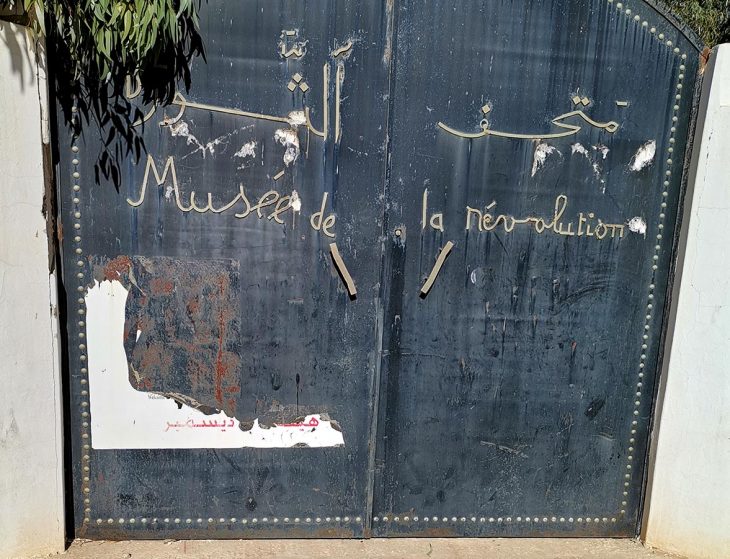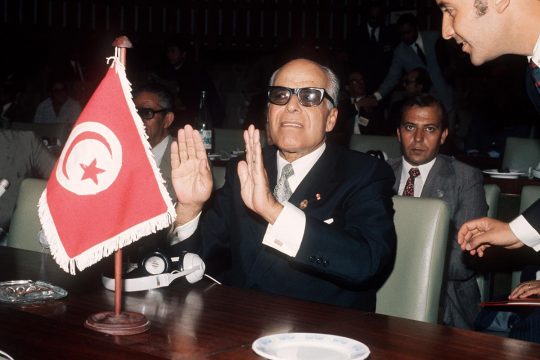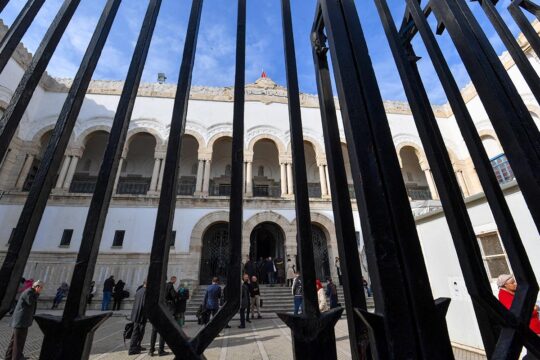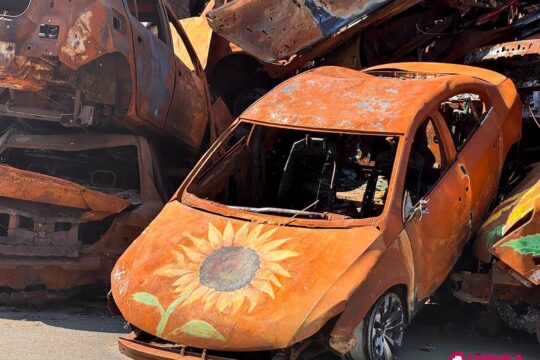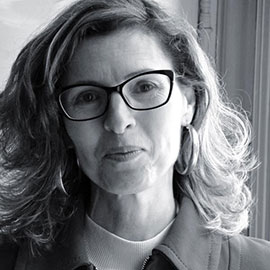JUSTICE INFO: Nearly four years after the Truth and Dignity Commission (IVD) ended its work, what do you think were the most important recommendations in the final report of its "Memory" committee?
ADEL MAIZI: The Commission identified five major components related to the preservation of memory, drawn from three sources: victims' requests during public and private hearings; the national consultation on reparations held by the IVD in 2017; and the proposals of MPs at the time the Commission’s annual budget was adopted.
First, we recommended in our final report that sites of serious human rights violations, such as prisons and torture centres, be transformed into "authentic sites" of culture and remembrance. We can cite as examples "Sabbat Edhlam" (The Door of Darkness), a house located in the medina of Tunis, which was used to torture and execute opponents of Bourguiba [president of Tunisia from 1957 to 1987] engaged between 1955 and 1956 in the Youssefist movement [supporters of Salah Ben Youssef, a nationalist activist opposed to Bourguiba]. There’s also the "April 9 Prison", demolished by former President Ben Ali [President of Tunisia from 1987 to 2011] in 2009, six years after the centenary of this place used to detain opponents during the colonial period. We propose to erect a memorial above which would be inscribed the history of the prison and the names of its victims. This vacant lot, as it is today, could house an institution in charge of remembrance. We also thought of a memorial to the disappeared of Jebel Agri (Agri Mountain), in the southeast of the country. It would be to honour the memory of all fallagua [independence activists] and resistance fighters shot by the French army between 1955 and 1956 in this mountainous region of Tataouine because they refused to lay down their arms after the agreements on internal autonomy. Open-air mass graves were found there by members of our Commission during a visit to Djebel Agri.
Secondly, renaming streets, avenues, squares, schools and other public establishments after events or figures of opposition to the authoritarian regimes of Bourguiba and Ben Ali, or the martyrs of the revolution [of 2011]. Many of the victims who spoke at the IVD consultation in 2017 expressed their objection to the fact that a major street in central Tunis pays tribute to Charles de Gaulle, who led France in the 1962 Bizerte War in which hundreds of Tunisians lost their lives.
Third, rewrite the history of violations and transmit it through education, replacing the current unilateral vision with an approach that ensures diverse views. The IVD's archives, in all their forms, are a major resource that can contribute to this goal. Among the good practices here, I noted something cited by the [UN] Special Rapporteur on the promotion of truth, justice, reparation and guarantees of non-repetition in a report published in 2020. It is a textbook entitled "History of the Other", published by the Peace Research Institute for the Middle East, which deals in an intelligent way with one of the longest conflicts in the Middle East. In its various chapters, it first presents the Palestinian perspective and then the opposing side's perspective on the same historical facts. It has a blank space left in the centre for students to place their own narrative.
The fourth major recommendation relates to accessing, managing and exploiting the legacy of the IVD: digitized audiovisual archives and internal files of the Commission.
The fifth component of our strategy concerns encouraging any artistic initiative that deals with and documents gross human rights violations.
Given the Tunisian art scene in recent years, it seems artists have already taken on the work of remembrance. Did you expect such a dynamic?
We certainly did not expect a star like actor and producer Dhafer Abidine to take up a theme like transitional justice in the feature film "Ghodwa" (Tomorrow)! What with films, television series, documentaries, plays, photography and novels, it's incredible how much remembrance inspires Tunisian artists. The victims’ stories sometimes surpass fiction - I think that’s what appeals to artists, who often come to ask me where they can listen again to the public hearings and these incredible stories of lives marked by violence and repression. In our final report, we recommended that the public authorities encourage artists to evoke this violent past through works retracing the lives of victims and the circumstances of their deaths, by boosting budgets, creating grants, competitions and prizes for this purpose.
Why have the public authorities not followed these recommendations?
The reasons are many. The old regime of Ben Ali did not completely disappear after the revolution of 2011, I realized during my time at the IVD. Its apparatus came back to power in 2014, following the election of Beji Caied Essebsi as President of the Republic, at the very moment when the IVD started to work. The parliament and the political coalitions formed at the time have only hindered our work.
On the other hand, it seems to me that many Tunisians refuse to face the past. Worse still, some resort to denial and suspicion about the revelations of the IVD. Mistrust of the victims for ideological reasons has also harmed the process. We have not, unfortunately, developed a human rights culture that guarantees respect and dignity for all, regardless of the political colour of our opponent. Furthermore, these recommendations are not binding. Only a combination of Article 148 of the 2014 Constitution [which says that "the state undertakes to implement the transitional justice system in all its areas and within the timeframes prescribed by the related legislation"], which has now disappeared [in the 2022 Constitution] and a decision of the Constitutional Court, which has so far done nothing, could have forced the state to implement them.
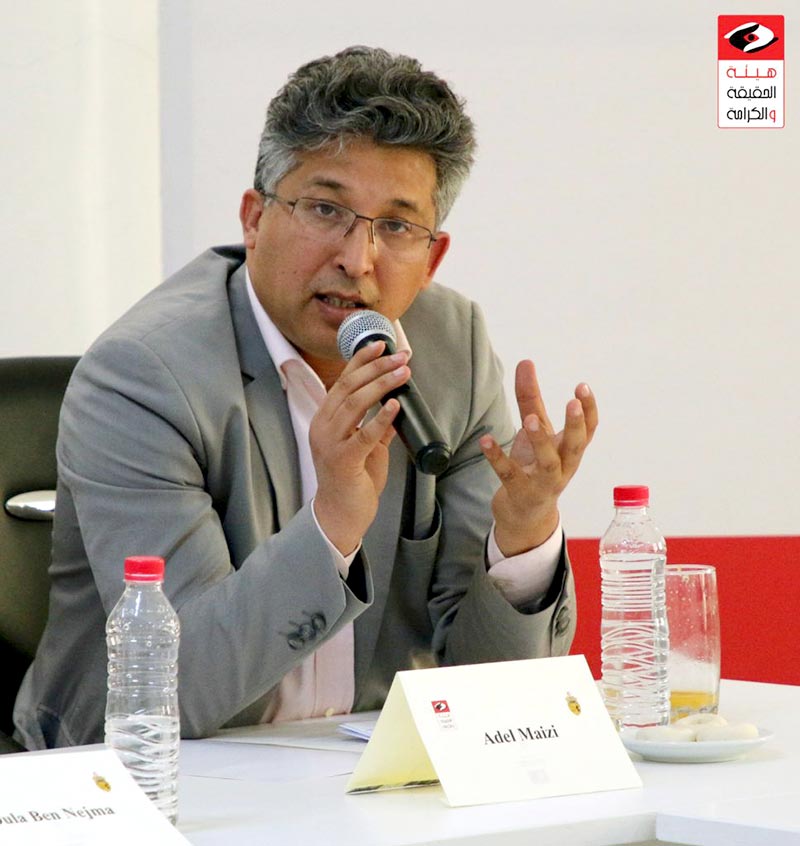
In the December 2013 Organic Law on Transitional Justice, only three rather skeletal articles mention the issue of memory. Was this pillar of transitional justice neglected in advance?
I think the provisions on memory/remembrance are characterized by vagueness. The legislator has considered preservation of memory as a secondary matter. Why, for example, does the law give alternatives on where the IVD’s legacy should go, either the national archives or an institution dedicated to remembrance? It would have been wiser to decide from the outset. The text does not clearly define either the right to remembrance or the obligations of the state in relation to memorialization. In our final report, we devoted a long paragraph to explaining the contours of this right to remembrance.
But it must be said that the victims do not attach much importance to this pillar of transitional justice either, as their demands generally emphasize financial compensation - something I can understand in view of the precarious situation in which many of them live. As for national and international NGOs, few of them dedicate gatherings and workshops to remembrance. And when this theme is addressed in meetings on transitional justice, it is often linked to revealing the truth or the reform of institutions. It is never seen as an independent tool that can change people's perceptions of history. NGOs prefer to work on projects that have an immediate impact, such as the training of judges for specialized chambers. Remembrance, on the other hand, requires a long term strategy over a long period of time.
As you just recalled, the IVD should, after its work has ended, entrust all its documents and files to the National Archives or a dedicated institution for the preservation of memory. In 2016, the Commission called for the establishment of such an institution, but it was not heard. Why?
This institution should actually have been established from the start of the IVD's mandate in June 2014, because a truth commission starts to receive files, testimonies, property and objects of victims very early. A law creating this structure should have been passed after the 2014 legislative elections. But none of the former victims who became MPs paid attention to it. And even before, at the time of the revolutionary euphoria of January 2011, nothing was done to initiate a memorialization process. Yet all the conditions were there: empathy for former victims, freedom for them to express themselves on social networks and television, the thousand and one projects to launch a museum of the Revolution in Sidi Bouzid and Kasserine. The train of transitional justice started too late in our country. We should have remembered also that politicians need the people to forget some serious things in the past in order to be able to govern...
Where are the archives of the IVD?
Since the authorities have not set up a structure for the study and development of the truth commission archives, it was forced to deliver its 10,000 boxes of archives to the National Archives, and its audiovisual recordings, containing the private testimony of victims, to the Prime Minister’s office. The documentary archives, transferred to the National Archives, contain the files of victims' complaints, archives collected during the Commission’s investigations and covering its whole mandated period of 1955 to 2013, the decisions of its governance, and documents of the various committees. There are 80,000 gigabytes of audiovisual archives. They contain valuable testimonies recorded during private hearings.
Is it possible to access these two types of archives today?
Currently, there is no legislative framework for the IVD archives. Our final report recommended revising the law on the National Archives, expanding its areas of competence, ensuring the institution's independence from the executive branch and providing it with qualified human resources. The IVD even went so far as to outline the contours of a new law, in line with international standards and better adapted to the specificities of these archives, guaranteeing their security and with precautions against use that would harm witnesses and victims.
During your speech at the Transitional Justice Conference in Tunis from February 23 to 24, you mentioned the "sensitivity" of transitional justice archives. Why are they sensitive?
I call these archives "sensitive" because they embody all the conditions and restrictions inherent in the protection of personal data: data relating to identity and privacy, medical data and security information. Hence the need to manage, process and use them in a different way than ordinary documents. However, these considerations should not hinder the work on remembrance. Referring to comparative experiences, we have recommended rewriting testimonies according to a well-defined protocol, to provide a version with all the sensitive data I mentioned taken out. While this is a daunting task, it is possible if there is political will and awareness of the archives’ importance, and if resources are allocated to this project. Software and applications can be used to make victims' stories accessible.
If you had to prioritize, what would be the two or three memory preservation projects proposed by the IVD that you think would best help prevent people forgetting and denying Tunisia's violent past?
Today it is crucial to find a new way of teaching history. With new school curricula, it is possible to forge a culture of peace and non-violence, to build a new person who does not, for example, resort to torture to extract confessions. Remembrance is not just about the past, it helps build the future. As urged in the December 2013 the law, the results of the final report should be widely disseminated. A digital version of this document was published in the Official Gazette in June 2020, but today we can't find a trace of it anywhere!


